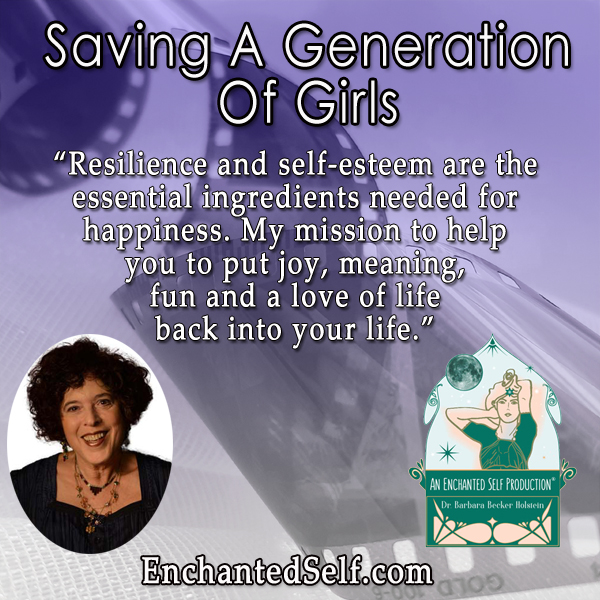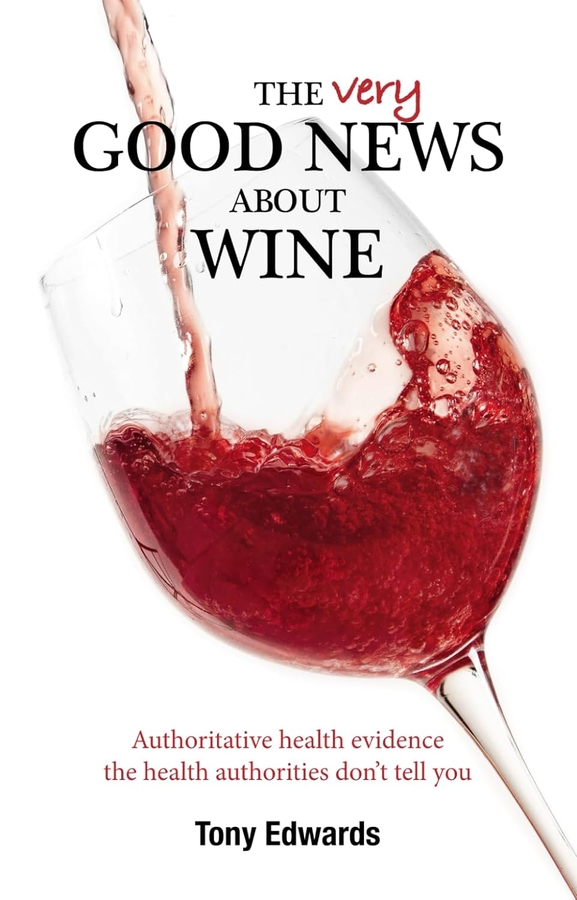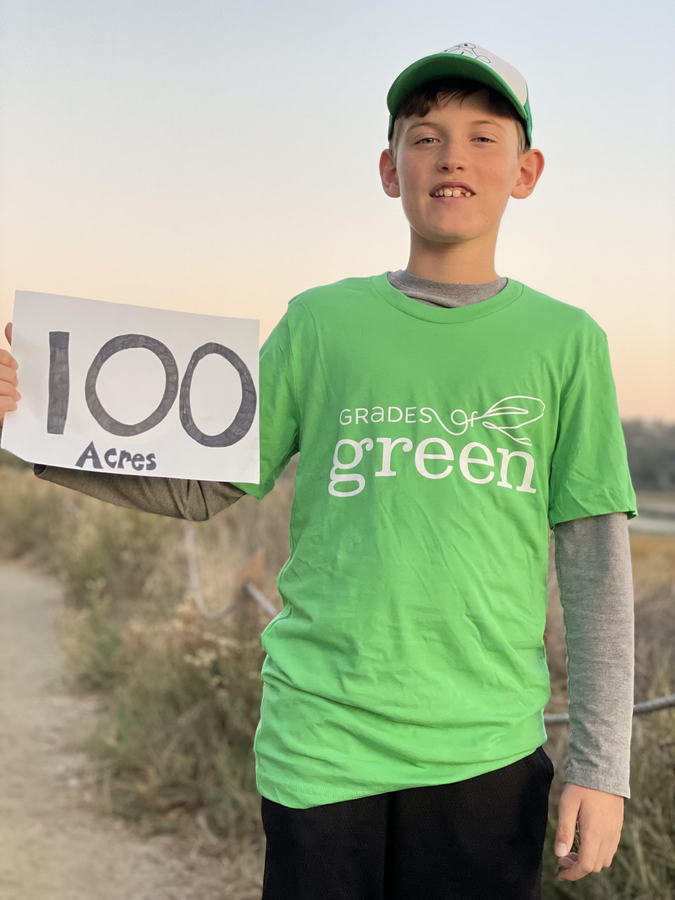Dr. Barbara Becker Holstein is a best-selling author, award-winning Selfie Filmmaker, Positive Psychologist and podcaster. In all her books and films, Dr Holstein presents positive psychology as entertainment and a means to happiness.
WILMINGTON, NC, May 18, 2023 /24-7PressRelease/ — According to an article on the John Hopkins website, titled “Anxiety and Stress in Teens”, “Anxiety disorders are the most common mental health disorder in the United States, and anywhere from 1 in 10 to 1 in 13 people suffer from anxiety, with about 8% of children and teenagers experiencing an anxiety disorder. This has worsened during the COVID-19 pandemic, and we are living in more times of stress and anxiety than ever before. The teenage years generally have significant stress and this has worsened during the pandemic.”
Much like adults, a primary cause of anxiety for teens can be the sense of isolation and loneliness they experience, whether from pandemic lockdowns, bullying or social media. According to PBS.org, a new report from the Surgeon General’s offices found ” finds loneliness can have profound effects on mental health, as well as heart disease, stroke and dementia. It tracks a decline in social connections, and links all of this to billions of dollars in health care costs.”
Dr. Barbara Becker Holstein is taking action now to save a generation of girls now. She recently posted a new video in which she discussed how parents and grandparents can help girls who suffer from anxiety.
“We all have had that anxious feeling in the pit in our stomach – we can’t take the test, we can’t go out on the stage to give our talk, whatever it is, we experience feelings of anxiety. At times, our hands get clammy. And we sometimes feel our breathing is faster. It’s so unpleasant. But on the other hand, as a positive psychologist, I want to assure you that anxiety is not only normal, but it can also be helpful. It can tell us when we need to repair something we’ve done, or maybe apologize. Or it can signal that if I’m not working harder, I really won’t pass the test. Or anxiety can warn us of danger. I don’t like the feelings I have right now. I think I’m going to get out of here and go somewhere else. Or I think I’m not going to walk to my car right now. I see some people hanging around it. Something doesn’t feel right. Anxiety can work to even save our lives.
“But on the other hand, if we look at anxiety during the pandemic, and some of the things that have created anxiety for our kids we will see that many of our kids are overloaded with anxiety.
“The truth is most of us have had anxiety during the pandemic. Many have lost their jobs. Many people have been sick or had relatives that were sick. And the same thing with the girls in our households. Girls have absorbed not only whatever the family concerns were and are, but they have had their own concerns – shortened school years, no graduation. No dances at the school. Wearing a mask all day at school, not being able to socialize. Having a crush with a particular kid that can’t be explored because the girl is spending most of her time not in school or not with kids or own age, all sorts of factors. No sports, the team she wanted to get on doesn’t even exist this year. All sorts of problems that created anxiety. And now that the pandemic is over, at least technically, that does not mean that anxiety just disappears. It is still around because our brains get used to feeling anxious, and not everything is back the way it was either for us or for our kids.”
Teenage girls appear to suffer most. A recent article on the CDC website, titled ‘Understanding the Pandemic’s Impact on Children and Teens’, stated, “. . . For example, weekly visits among older children (5–11) and teens (12–17) increased for self-harm, drug poisoning, and psychosocial concerns during 2020, 2021, and 2022 when compared to 2019. The other report shows that teenage girls may have experienced the largest overall increase in behavioral and psychosocial concerns.”
Dr. Holstein continued, “So I’ll give you three simple suggestions.:
“Without overwhelming her, share your anxiety. Tell her you know, ‘boy, yeah, I felt anxious too.’ Let her know that it’s a normal survival symptom.
“Encourage your daughter about her schoolwork, see how she’s doing. See what’s going on. Not only by asking her questions, but again, by easily sharing your own life. Even if it goes way back to your own childhood, maybe the Teddy that you took to bed, or the little blanket you carried around like my daughter did at one point, when she was very, very young, or the way you felt anxious when you were going to your first dance, or the first time maybe a boy called you on the telephone. Share your world because it will really help her feel closer to you and most likely safer.
” The third suggestion is around eating issues. Research certainly has established that different issues with eating and body comfort and perception are often very prevalent with girls as they go through their teenage years. One thing that you can do to be very helpful to your daughter is to be aware of her eating habits. Be honest once again and if you yourself at times don’t feel like eating a meal, discuss it, because you might be able to open the door where she’ll explain that sometimes she’s just not hungry, and maybe nothing’s going on. But if it does seem to you that your daughter may be having some sort of eating disorder, discuss it further with her pediatrician.
“Research certainly has established that different issues with eating are often very prevalent with girls as they go through their teenage years. So one thing that you can do to be very helpful to your daughter, is just to be very careful noticing what she eats and what she doesn’t eat, and whether you think she’s eating enough. And again, if you yourself at times don’t feel like eating a meal, discuss it, because you might be able to open the door where she’ll explain that sometimes she’s just not hungry, and maybe nothing’s going on. But if it does seem to you that your daughter may be having some sort of eating disorder, it’s responsible, on your part, to take her to her pediatrician and discuss it further.”
There are many other widely accepted ways all parents and grandparents can help girls cope with anxiety.
1. Encourage communication: One of the best ways parents and grandparents can help a teenage girl who is suffering from anxiety is by creating an environment where she feels comfortable sharing her thoughts and feelings. Encourage her to talk about her anxieties and let her know that she can confide in you without fear of judgment.
2. Provide support: Let her know that you’re there to support her and help her through this difficult time. Listen to her concerns and validate her feelings. Offer to accompany her to therapy appointments or support groups if she needs it.
3. Help her develop coping strategies: Teach her techniques for managing anxiety, such as deep breathing, mindfulness, or journaling. Encourage her to engage in activities that help her relax, such as yoga or listening to music.
4. Encourage a healthy lifestyle: A healthy lifestyle can help reduce anxiety symptoms. Encourage her to eat a balanced diet, exercise regularly, and get enough sleep. Also, limit her caffeine and sugar intake, which can contribute to anxiety.
5. Seek professional help: If her anxiety is severe or interfering with her daily life, seek professional help. A therapist or counselor can help her develop coping skills and strategies to manage her anxiety. Don’t hesitate to consult with a doctor or mental health professional if you’re concerned about her mental health.
“By taking these steps,” Dr Holstein concluded, “we can help girls build resilience, self-esteem and help them to cope with the modern-day challenges of growing up.”
The full video is now available at https://vimeo.com/825499855.
Dr. Holstein hopes to bring parents, teachers, librarians, grandparents and media together to accomplish one goal: Change in the lives of young people who suffer from anxiety and a growing sense of hopelessness and despair.
Dr. Holstein wraps Positive Psychology concepts in forms of media that young people find engaging, relatable and inspiring. These include:
Three Bestselling, award-winning books (perfect for school libraries)
Four self-esteem workbooks for girls 8 and up
Award-winning films and coming of age selfie films
Podcasts
Dedicated websites
Stage plays
A library of articles
Ted-style talks
As a school psychologist and in her private practice, Dr. Holstein has worked with many children and parents, helping them to develop life skills in decision-making, recognition of their own talents, feel more courageous, and helping both kids and parents develop more successful inter-generational skills. Her last book, ‘Conflict and a Bit of Magic’, helps kids build self-esteem though reading the journal of a girl, identifying with the girl, and understanding they have more courage and resiliency than they thought they had. The book is based on the experiences of the already famous “girl” from ‘The Truth, Diary of a Gutsy Tween’ and ‘Secrets, Diary of a Gutsy Teen’, and achieved bestseller status in the multi-generational families category.
Dr. Holstein’s cutting-edge presentations, most recently based on the Covid-19 pandemic issues, can be found on both YouTube, Vimeo and on the Roku channel and Amazon Fire TV, titled as ‘The Enchanted Self Presents’.
Dr. Holstein recently created The Selfie Showcase, a new project emerging from The Selfie Project, that allows young people to voice their opinions on subjects that matter to young people, including the pandemic.
The Selfie Showcase allows kids, teens, and young adults ages 13 to 18 to candidly express their concerns, worries, observations and possible solutions by creating selfie videos or films around important subjects using a smartphone. Dr. Holstein’s mission is to help rectify, in several ways, some issues young people face by giving them a chance to engage with others in meaningful ways about the anxiety and stress they must grapple with constantly.
Dr. Holstein is available for media interviews and can be reached using the information below or by email at [email protected]. ‘Seven Ways To Help Your Family Recover From The Pandemic’ is available at Amazon. More information about the Selfie Showcase is available at http://www.selfiefilmmakers.com. Selfie videos and selfie films can be uploaded at the site. Potential podcast guests can contact Dr. Holstein by email. More information is available at her primary website at http://www.enchantedself.com.
Profile:
Dr. Barbara Becker Holstein, internationally known Positive Psychologist is the creator of The Enchanted Self ®, a positive psychology method for happiness and a pioneer in Selfies as Film. Dr. Holstein’s Enchanted Self website was included as one of the best websites in positive psychology. She is in private practice in Long Branch, New Jersey with her husband, Dr. Russell M. Holstein.
Dr. Barbara can be found on the web, interviewed, writing articles and posting video ‘TED’ style talks on Happiness, Positive Psychology, Relationships and Parenting. Her Roku channel is: The Enchanted Self Presents.
She has been a contributor to Your Tango, Heart and Soul, The Philadelphia Inquirer, Honey Good, Cosmopolitan Magazine, Redbook, Real Simple, Women’s World, The Wall Street Journal, Psychcentral.com, Time online, the Today Show and Family Circle Magazine.
—
For the original version of this press release, please visit 24-7PressRelease.com here





